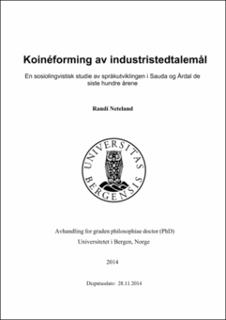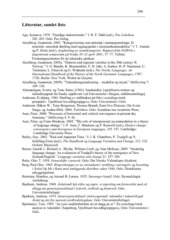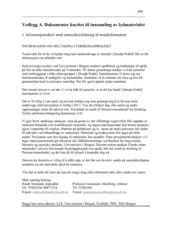| dc.description.abstract | In this sociolinguistic dissertation I investigate how the dialects in Sauda and Årdal have changed over the last hundred years. Sauda and Årdal are two large industrial towns in Western Norway, and are, among other things, characterized by a rapid and concentrated population growth in the industrialization period. I argue that Norwegian industrial town dialects should be examined as koines that develop due to the dialect contact between the original inhabitants and the many in-migrants. Accordingly, dialect changes should be examined in the context of macro social changes that occurred in these towns as a consequence of the industrialization. This dissertation is therefore written in a koine formation perspective, where the traditional model of koine formation (also called ‘new-dialect formation’) (Trudgill 1986, Siegel 1985) is supplemented with the perspective of language evolution (Mufwene 2001). These theoretical perspectives are accounted for in the introduction. Furthermore, the first article, article I, is a theoretical discussion of the term ‘koine’ and a comparison of koine formation in Norwegian industrial town dialects and other dialect changes. The three other articles, article II, III, and IV, are empirical investigations where language change and variation in the industrial town dialects of Sauda and Årdal are examined from different perspectives. The main purpose of these three articles is to address the question of how language structural and language social factors play a role in koine formation processes in Norwegian industrial town dialects. The introduction to the dissertation accounts for the main findings in the articles, and discusses the articles in light of the main research question. The introduction also adds further information on the methods of collecting and analyzing speech data used in this dissertation, and a description of the industrial towns Sauda and Årdal. The empirical basis for the current study is a large collection of speech recordings from Sauda and Årdal (in total 47 informants from Sauda and 60 informants from Årdal). The recordings can be grouped in three: Recordings from the 1960s (only Årdal), from the 1980s (both towns) and from 2011 (both towns). I use written descriptions of the dialects in Sauda and Årdal and a range of other dialects, in addition to these recordings. The hundred year period described in this dissertation has to be investigated with an apparent time method, but I also describe some of the dialect changes investigated with a real time method. Article II, III, and IV, approach the subject of koine formation in industrial towns from different perspectives. In article II, I focus on grammatical simplification, and the relationship between simplification and other changes, based on a statistical comparison of simplification in 43 town dialects and a quantitative comparison of simplification and other language changes in 8 industrial town dialects. Article III is centred around the levelling process between the dialects in contact in the industrial towns Sauda and Årdal. I show how the dialects of Sauda and Årdal have changed, and then analyse each variable and discuss if the variant used today might have “won” as a result of this variant being the most frequent when the original inhabitants’ and in-migrants’ birth place dialects are taken together. In article IV, I focus on the social conditions in Sauda and Årdal, and discuss if there are any social structures that can promote or restrict the introduction of new variants to these industrial town dialects. The main findings from these empirical investigations are that the language structural aspects of the dialects in contact in the industrial towns, both determine which language features are used in the industrial towns’ dialects in the hundred year period, and determine which grammatical simplifications occur in these koines. However, the simplification and levelling processes also seem to be governed by regional and national norms for language use. In addition, the unique historical macro social conditions in the industrial towns, create different conditions for interaction between the inhabitants, and therefore create different conditions for the introduction and spread of new variants to the speech society. The comparison between the dialect in Sauda and the dialect in Årdal accentuate that the two towns’ different industrialization histories as well as different geographical conditions, influence how these industrial towns’ dialects change. In this dissertation I argue that the factory has a social core function in industrial towns and that the factory is a central social factor in the koine formation processes both on the social level and on the individual level. However, these processes take place in a close interplay between the language structure of the dialects in contact in the industrial towns and the social conditions for language use and interaction in the towns and the region. Accordingly, this creates unique and different conditions for the formation of each industrial town dialect. | en_US |


